I hope that you and your loved ones never need to visit an emergency department, and I wish you long, healthy, happy lives.
But sometimes things happen that are beyond our control, and in a true emergency, there is no better place to be.
Suffering from illness or injury can be a very scary and overwhelming experience that you would never intentionally choose, but you CAN choose how to approach the experience and make your visit and recovery as smooth as possible. Here are my Top 10 ED Survival Tips.
1. Be Grateful For The Wait.
You’re scared. You’re in pain. And now you’re angry because you’ve been waiting a long time. People who arrived after you have already been seen. Gosh darn it, when is it going to be your turn?!?
Believe it or not, being asked to wait is a good thing- if you’re actively dying, you get treated first.
If the triage nurse has talked to you and taken your vital signs, we know whether you’re stable for now. While we see many patients with your symptoms every day and it has become routine for us, we do understand that this may be your only visit ever and you’re worried. We sincerely wish we could see everyone immediately and we’re sorry about the delay.
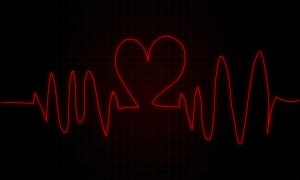 We don’t want you to wait a minute longer than necessary, but we also need to make sure that the sickest patients get seen first. If you or your loved one were not breathing or were having a massive stroke or heart attack, or if you’d just been in an accident and had bones poking through your skin or were bleeding internally, you’d want us to treat you first.
We don’t want you to wait a minute longer than necessary, but we also need to make sure that the sickest patients get seen first. If you or your loved one were not breathing or were having a massive stroke or heart attack, or if you’d just been in an accident and had bones poking through your skin or were bleeding internally, you’d want us to treat you first.
But what about the people being seen right away who look perfectly fine?
You’re right. Some of them also get seen more quickly than you will. Many EDs have a limited number of rooms, heart monitors, and IV pumps. If we think you will need special equipment, we have to wait until a room with that equipment is available.
If someone comes in for a paper cut or a hangnail*, they don’t need much monitoring or equipment. If the rooms are all full, we can treat these patients on stretchers in hallways or even in chairs in a separate waiting room.
If you find yourself in one of these areas, we do apologize that it isn’t as comfortable or private as having your own room. We’ll do our best to make your visit as pleasant as possible. Or, if you’d prefer, you can go back to the lobby and wait a few more hours for a room.
2. Tell Everyone Everything.
You feel like a broken record. You told your story to the paramedics when they picked you up, to a nurse when you got here, to another nurse when you got to your room, and now a doctor is asking you the exact same questions. What gives? Are we stupid? Don’t we communicate with each other?
Again, we apologize for the frustration. It’s (mostly) for a good reason.
In general, the initial questions from the paramedics and triage nurse are to make sure you get to the right spot in the department (See Tip #1), and the questions from the next nurse and your doctor are to make sure you get the evaluation and treatment you need.
However, if you were a fly on the wall, you’d see how patients’ stories change over time. When we ask questions the first time, patients often can’t remember all the details. They forget the name of the medicine they’ve been taking, or they know they’re allergic to three things but can only remember two. Maybe they’re confused and don’t remember why they’re even in the ED.
When we ask again, more information is often available. Sometimes patients have been able to call family members for more information or to ask them to bring medications and records to the ED. Sometimes patients have thought of more symptoms that can be helpful in figuring out what’s going on.
Sometimes family members arrive or leave between sets of questions, and this can change the answers- sometimes family can provide helpful information if the patient’s memory is poor, and sometimes patients don’t feel comfortable telling the truth in front of family, even though they say they want their family members in the room the whole time.
We’re not trying to give you a hard time or cause you frustration. We just want to make sure that we’re all on the same page and that we’re not missing anything important.
If you don’t tell us a symptom or a concern until you’ve been there for hours and are about to be discharged, we’ll have to start all over and you may have to wait several more hours for more tests. Having all the information up front can help us find answers for you sooner.
 Okay, fine. But can’t we just read the chart instead of asking all those questions?
Okay, fine. But can’t we just read the chart instead of asking all those questions?
Sure, I’d be happy to read your entire chart. I’ll be back in a few minutes weeks. The more information you can tell us, the faster we can start making you feel better and figuring out what’s wrong.
While it would make sense to have all of your history, lab results, imaging results, and doctors’ notes available in our computers, this is rarely the case. We all wish it were that simple, but sadly it isn’t.
First, computer records can be slow and complicated to search.
Second, the computer system in our hospital probably doesn’t share information with the system at the hospital across the street where you were admitted last week. It’s also likely that neither hospital computer system is able to share information with the system your primary care doctor uses.
You’re totally right. It’s a giant pain in the … neck… For all of us.
3. Bring It All. But Don’t Bring Children Unless They’re Patients.
You can’t plan for all emergencies, but you can keep a note in your purse or wallet that lists the following:
- Your allergies.
- Your medications and doses.
- Your major medical conditions.
- All the surgeries you’ve had, and the years you had them.
- Names and phone numbers of your primary care doctor and specialists. There may be hundreds of doctors with the same last name in a city, so please be as specific as possible.
- Names and phone numbers of family members or your Power of Attorney.
This note is especially useful if it has been laminated or coated with clear tape so it’s still legible after being carried around for months or years.
If possible, bring your medication bottles with you too. I frequently see patients who are taking two or three times the proper dose of a medication because one bottle is labeled with the brand name and another bottle is labeled with the generic name, and they don’t realize it’s actually the same medication.
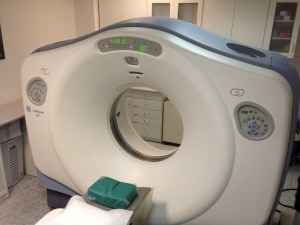 Also bring any recent X-ray, CT, Ultrasound, or MRI reports or lab results that might be relevant. It’s better to have them available and not need them than to need them and not have them. This might save you time and money if the information keeps us from having to repeat a test. If your symptoms have changed since your last test, though, we may need to repeat tests to make a comparison.
Also bring any recent X-ray, CT, Ultrasound, or MRI reports or lab results that might be relevant. It’s better to have them available and not need them than to need them and not have them. This might save you time and money if the information keeps us from having to repeat a test. If your symptoms have changed since your last test, though, we may need to repeat tests to make a comparison.
If you’re in the middle of a complicated course of treatment, ask your primary doctor to write a summary you can carry with you. Include what treatments worked and what didn’t. There’s no sense in reinventing the wheel, but unfortunately “the oval white pill” that works best for your symptoms could be any of 100 different medications that fit this description.
If you have a living will, please bring a copy so we can see what choices you’ve made.** Living wills can say many different things, so just knowing that you have one doesn’t help us honor your wishes. We need to actually read it.
While bringing information is good, bringing children to the ED is not ideal. If they’re not patients, please leave them with a trusted adult at home. If they have to come with you, please ask a trusted adult to pick them up as soon as possible.
Other patients in the ED may have infectious diseases or be high on drugs. They may be violent or mentally ill, and while we do our best to protect everyone, kids can be exposed to unpleasant germs, sights, and language.
In addition, visitors cannot go with you to the radiology department because they should not be exposed to unnecessary radiation. We do not have extra staff to watch your small children while you are out of your room for imaging or procedures.
4. Be Truthful About Allergies.
Your third cousin twice removed is allergic to penicillin. Maybe. And codeine makes you nauseated. So you say you’re allergic to both of them. No big deal, right?
Wrong.
We take allergic reactions very seriously. They can run the gamut from mild rash and itching to life-threatening anaphylaxis, and they often become more severe each time you’re exposed to the offending substance.
 If you tell us you’re allergic to a medication, we can’t give it to you, even if it is the very best medication for your condition and could save your life. Instead, we have to choose something less effective, with more side effects, and likely much more expensive.
If you tell us you’re allergic to a medication, we can’t give it to you, even if it is the very best medication for your condition and could save your life. Instead, we have to choose something less effective, with more side effects, and likely much more expensive.
If you tell us you’re allergic to an antibiotic that you could take orally and the only substitute is an antibiotic that must be given through an IV, you could have to stay in the hospital for a long time. This puts you at risk of catching other infections, developing blood clots, getting weaker while you’re stuck in bed, and countless other undesirable and dangerous outcomes that could have been prevented.
If a medication makes you nauseated, tell us. We can help manage the side effects. If possible, we’ll still avoid medications you don’t like, but please don’t limit the options that could save your life.
5. Get Naked.
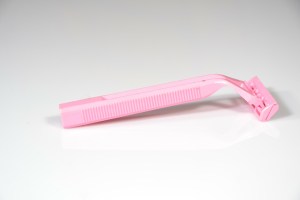 You haven’t shaved your legs since the (first) Clinton administration, and you didn’t take your mama’s advice to always wear clean underwear. You’re embarrassed and would rather not have a physical exam.
You haven’t shaved your legs since the (first) Clinton administration, and you didn’t take your mama’s advice to always wear clean underwear. You’re embarrassed and would rather not have a physical exam.
I promise we don’t care how you look. We won’t notice if your legs (or any other body part) are freshly shaved. It is nice when patients have showered recently, but I guarantee that you will not be the worst-smelling person we’ve cared for that day.
We don’t get excited about seeing patients without their clothes. It’s just part of our job. Even if you’re a supermodel, to us you’re still a patient. Period.
We know you don’t like getting pelvic or rectal exams, and guess what? We don’t particularly like doing them either, so we won’t ask you to endure these exams if they’re not necessary. Guess what else? They’re also part of our job and we’re happy to do them when they’ll give us the information we need to take good care of you.
We don’t go home and tell our friends and families about these exams. They’re not that interesting to us or anyone else, clean underwear or not.
What we do gripe to our coworkers about are patients like the one who came to the ED because of knee pain but refused to take off her boots and skinny jeans and change into a gown so we could examine her knee. Sure, she looked cute, but I don’t have x-ray vision and couldn’t give her the best possible care without a proper exam.
6. Be Nice.
You’re sick. You’re hurting. You’re stressed out. This is NOT what you had planned for today. We get it. But we didn’t cause it. We’re here to help.
You deserve to be treated with kindness and compassion, and we strive to treat every patient as we would want to be treated if our positions were reversed. Please do the same for us.
Yelling at, spitting at, hitting/kicking/throwing things at, and cursing at us is not productive nor is it appropriate. Threatening to kill or sue us will not get you better care. Yes, these things have all happened to me personally and regularly.
ED staff is abused all the time, but that doesn’t make it okay. We can and probably should press charges more often, but this is time-consuming and we’re already busy- taking care of you. So cut it out and be nice.
But not too nice. Please don’t comment on our appearance. We don’t come to work to be hit on or groped, and this isn’t a fashion show. Competence is the only relevant factor- feel free to ask where we went to school if you really care, but our age and if we’re free on Friday night aren’t up for discussion.
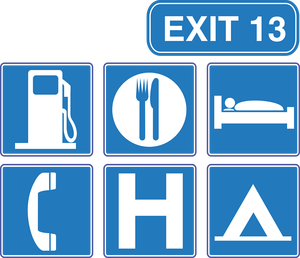 We’ll try to make your visit as comfortable as possible, but just as it isn’t a dating service, the emergency department is also not a restaurant nor a hotel. There are good reasons we can’t always bring you food or get you another pillow or another dose of dilaudid.
We’ll try to make your visit as comfortable as possible, but just as it isn’t a dating service, the emergency department is also not a restaurant nor a hotel. There are good reasons we can’t always bring you food or get you another pillow or another dose of dilaudid.
If you might need surgery, you can’t eat or drink because anesthesia is safer with an empty stomach. If you have a bowel obstruction or perforation, eating can make you even more ill.
If you have been injured, moving around or sitting up could make your injuries worse, so we often keep you flat, or at least keep your back straight, until we know whether your spine is broken.
If you need more pain medication, please ask for it but understand why we might not be able to give you more right away. Most pain medications stronger than acetaminophen (Tylenol) and ibuprofen (Motrin) are narcotics and have many side effects. They can make you nauseated and constipated, but more importantly they can lower your heart rate and blood pressure and can decrease your body’s drive to breathe. They can make you sleepy and confused so you might not be able to make good decisions about treatment that you might need. They are chemically related to heroin, and tens of thousands of people die from overdoses of these prescription medications in the US every year. Our first goal is to do no harm, and while we want you to be comfortable, we also want you to be safe.
If we promised you a glass of water and didn’t bring it, we truly are sorry. We likely left your room with the intention of bringing you one immediately and were interrupted by the arrival of an actively dying patient (See Tip #1). Please feel free to ask us again in a few minutes or ask your family to bring you something from the cafeteria.
7. Ask questions.
Say what? Pardon? Come again? Huh?
Medicine has its own language and is nearly incomprehensible without translation. We live and breathe it, so it seems normal to us and sometimes we forget that to most people we might as well be speaking Swahili.
 We also move quickly and thrive on adrenaline- after all, we choose to work in the emergency department. We all have a little ADHD, even if it hasn’t been officially diagnosed.
We also move quickly and thrive on adrenaline- after all, we choose to work in the emergency department. We all have a little ADHD, even if it hasn’t been officially diagnosed.
If you don’t understand something, please ask us to slow down and explain it again. If you are confused about what happened during your ED visit and what to do next, then you might not get the follow-up that you need and you might get sick again. If you don’t know what we tested for, you might still be worried when you don’t need to be.
We want you to understand. When you think you do, try to explain it back to us to make sure you don’t have any more questions. If you still don’t understand, ask again. If you know you won’t remember or are groggy from pain medications, ask us to call a family member or write it down.
8. Come For Emergencies.
The emergency department staff is excellent at ruling in or out acute, life-threatening conditions that could kill you in the minutes-to-days time frame. Unfortunately, we often don’t have the tools to definitively diagnose chronic conditions.***
“You’ve had a headache for eight years?” I asked.
“Yup,” he said.
“Is there anything different about it today? What made you come to the ED now instead of last week or tomorrow?”
“The cable went out and I was bored. Thought I might as well get it checked out,” he explained.*
The purpose of the emergency department is commonly misunderstood. It is not intended to be a place where all conditions of any acuity are diagnosed. Its mission is to stabilize patients and either admit them to the hospital for specialized acute care or ensure that they’re safe to wait until they can see their primary care doctors. The ED is not intended to replace primary care.
For example, if you come to the ED with chest pain that has been present for a few hours or days, we are mainly worried about conditions that can kill you quickly: a heart attack, pneumonia, collapsed lung, blood clot in the lung, or a tear in your aorta- the giant artery that starts at your heart. We have great tests to diagnose these conditions and can begin treatment immediately. We can arrange for your admission to the hospital and consultation by specialists if necessary.
If tests for the above conditions are negative, that’s reason for celebration. We share your frustration and disappointment at not having a definite answer, but we’re also very glad that we haven’t found anything terrible and hope that you’re glad too.
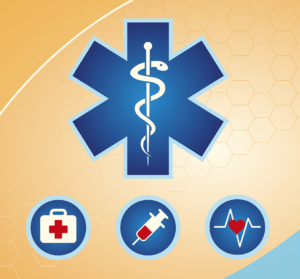 We are likely to make an educated guess at what is causing your pain. Based on your symptoms, we might feel confident that you have indigestion, a viral infection, or a pulled muscle, though we don’t have tests to prove it. You could also have inflammation of the lining around your lungs, a small tumor, or any of countless other reasons for your pain.
We are likely to make an educated guess at what is causing your pain. Based on your symptoms, we might feel confident that you have indigestion, a viral infection, or a pulled muscle, though we don’t have tests to prove it. You could also have inflammation of the lining around your lungs, a small tumor, or any of countless other reasons for your pain.
In these cases, we make sure you’re stable, but your care is not yet complete. It is important that you follow up with your primary care doctor to ensure that you’re improving. If you don’t get better, your primary care doctor may order further testing or refer you to a specialist.
If you come to us for a second or third or thirteenth opinion for a chronic condition, we’re happy to do what we can, but we’re not likely to be able to give you more information than you already got from the specialists you already have.
Each specialty has access to specific diagnostic tests and procedures that are not- and should not- be available in the ED. If the ED were full of patients wanting emergent answers for their chronic conditions, who would treat people with true emergencies?
9. Prepare Yourself For Sticker Shock.
You didn’t want to get sick or have an emergency, but you did, and now you have the medical bills to prove it.
It isn’t fair. We hate it too. And we don’t know the best way to fix it either.
Most emergency doctors and nurses have no control whatsoever over what you’re charged, and we can’t even tell you ahead of time what the bill will be. Every hospital charges a different amount, and every insurance plan pays a different amount. There are different copays and different deductibles. There are bills for the facility, for labs, for procedures and supplies, for radiology, for medications, and for doctors. Saying it’s complicated is the understatement of the century.
 When you go to a restaurant, you can see a menu and choose your meal based on price. When you take your car in to be repaired, you get a quote before deciding whether to proceed. But in the ED, even if you ask for the price, we don’t usually know what your specific charges will be. The general answer is “a lot.”
When you go to a restaurant, you can see a menu and choose your meal based on price. When you take your car in to be repaired, you get a quote before deciding whether to proceed. But in the ED, even if you ask for the price, we don’t usually know what your specific charges will be. The general answer is “a lot.”
Why is care in the ED so expensive even if you’re not that sick? The main reason is that we have to be prepared for any true emergency 24/7/365. We have to be open, fully stocked and staffed, with access to labs, imaging, specialists, and transport whether they’re actually needed or not. We also are federally mandated to care for everyone, whether they can pay or not, so those who can pay subsidize those who can’t. If they didn’t, hospitals would go bankrupt and close. Some already have and more will.
If you visit an outpatient imaging center, an MRI will cost much less than it does in the ED. The center can refuse patients without insurance or who can’t pay their deductibles. It can also book patients back-to-back-to-back to ensure that the machine is well-used to offset the huge cost of purchasing it. The ED never knows who its patients will be or what they will need.
An outpatient lab only has to staff phlebotomists and techs during its business hours. It doesn’t have to stay open nights and weekends, and it doesn’t have nurses, doctors, and MRIs available too, so it can charge less.
If you aren’t sure if your issue is emergent, call your health plan’s hotline or see this fabulous chart***. It was produced by folks in the UK, so kindly disregard the funny spelling.
If you have an emergency that cannot wait until you are able to get an appointment with your primary care physician, by all means seek assistance in the emergency department. We’re happy to discuss what conditions we’re concerned about and what testing we can offer to evaluate them. You do have the right to refuse any test you don’t want, but you’ll also accept the risk of missing whatever that test might find.
If you do get a bill that is more than you can afford, most facilities can help you set up a payment plan.
10. Laugh And Cry With Us.
We are human beings working with you to navigate an imperfect healthcare system during a stressful time in your life, and we’re honored to walk alongside you. Yes, it’s our job, but we choose this job because we care.
We will laugh with you when your kids say silly things and when you joke to ease your tension- even if your jokes aren’t funny. We’ll celebrate the news of your pregnancy and the birth of your new baby. We’ll hold your hand and cry for your miscarriage and your cancer diagnosis, then we’ll go home and cry for you some more.
We care more than you’ll ever know. Thank you for letting us share this journey with you, and please let us know how we can help care for you better.
We wish you well.
*True stories.
**If you have a severe, chronic medical condition, please talk with your family about your wishes. If you have metastatic cancer, do you want all treatment available, even if it’s experimental and has significant side effects? If your heart and lungs fail, do you want to be on life support? Do you want to stay out of the hospital as much as possible and be comfortable at home? Do you want something in between?
Please, PLEASE talk with your family and your doctor about your wishes before you find yourself in an emergency situation when you might not be able to communicate well. Make a living will. Don’t make your loved ones guess and worry and feel guilty that they might be making the “wrong” choices.
If you’re no longer able to communicate your wishes, it’s up to your next of kin or the person you’ve chosen as your power of attorney to make decisions on your behalf. However, they are NOT obligated to follow your wishes and can decide to rescind your living will or DNR. Choose your POA carefully and make sure it’s someone you trust to ensure your wishes are honored.
***When choosing a name for this website, I discovered the UK’s Choose Better campaign to help patients figure out where to seek care based on their symptoms. Check it out.
Do you have any other tips for surviving an ED visit? Share them in the comments section below.
This post contains affiliate links. Learn more here.

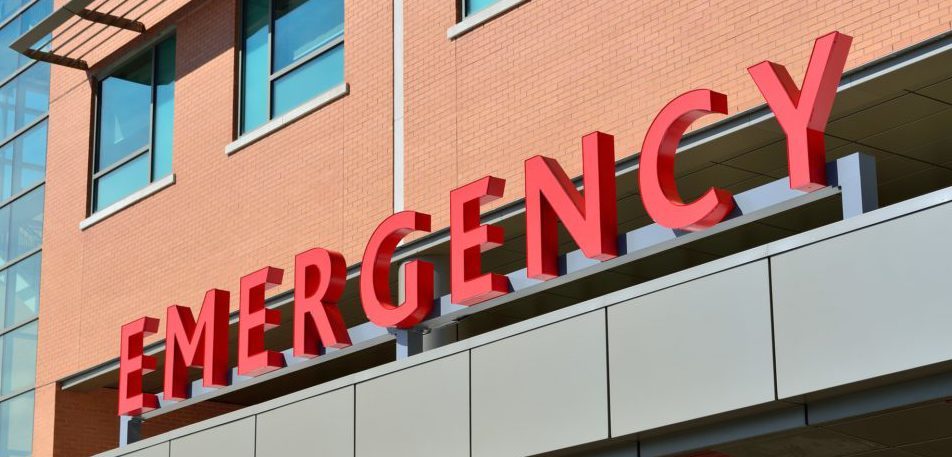
Comments 14
This is great Julie! I’ve only been in the ER a few times in my life (including with my kids, husband) so I feel very lucky. I truly appreciate many of the weekend/night clinics that are now available to help when the doctor’s office is closed! I think that has helped some with the ER visits in our area. I know the “going to the ER decision” is difficult for many people (but not for others!) but the list you provided is a nice, quick guide. Thanks to you and your peers for all you do!
Author
Thanks, Vicki.
Yes, it’s wonderful that clinics have longer hours and Urgent Cares are open late. I hate knowing that even if the patients are safe, they’re going to get a huge bill for just a few stitches. On the other hand, sewing is fun!
Great list, Julie! I’m sure you’ve heard and seen it all! Though we have been to the ER a handful of times (and I hope not to have to be there any time in the near future), I certainly could’ve used this list. We are generally pretty healthy and having walk in clinics nearby has saved us a few ER visits and some serious cash.
Author
Thanks, Amanda. Here’s hoping you and your family stay healthy and happy 🙂
I like the advice about being happy that we’re waiting. I had no idea that waiting was actually a good thing for my sign. Definitely put a spin from a negative perspective to a positive perspective for me. I hope that I don’t go to the hospital anytime soon, however!
Author
Yes, waiting can be good, though we know it’s still a giant pain in the neck sometimes and we wish we could see everyone right away. I hope you and your loved ones stay happy and healthy!
Great info! Knock on wood, I only have been to the ER once that I remember clearly. (although i know of at least 2 other times when I was a 2 year old that I don’t remember. Mothballs are yucky.)
I’ve always found that no matter what the situation, I’ve always gotten better results being nice/patient/understanding than being a jerk. There’s probably a reason we’re called patients.
Author
LOL. And there’s a reason it’s called “practicing” medicine 🙂
Thank you for being so nice. You’re right that it’s always a good stragegy and seldom leads to regrets. I hope you and your family stay well and happy.
Thanks for sharing this article. I think we tend to forget how to behave at times of stress.
We had an ED visit a number of years ago after our child got stung on the beach. The paramedics decided to take him because he was under 2 and appeared to be having an allergic reaction.
It was a highly stressful situation, but managed as well as could be expected by the hospital staff.
Just like the fire department, the police department, and all the other emergency sevices we rely on, their jobs can be a stressful job and we should try to remember that.
Author
Hi Dave,
It sounds like your son is okay now-thank goodness! It’s always so much scarier when it’s your kid.
I also have unending respect for the first responders. At least in the ED we are somewhat protected, but they go out into traffic, in the range of active shooters, etc. They’re the true heroes.
I haven’t been for myself but been with my partner a few times. Staying calm is hard but important! And patience. Scariest was in Thailand as obviously there was a language barrier and I had no idea what was going on, he was whisked away and I couldn’t follow. I cried. A lot.
Thankfully the financial aspect is removed as the ER is free for us. Kinda sucks that emergencies are cheaper than a normal doctor’s visit, but eh.
Author
Absolutely! A language barrier makes everything so much harder. When haggling in the market it can be fun, but in the ED it’s terrifying to not know what’s going on. I hope your partner is doing well now.
I worked in a Wanganui ED for a while a few years ago and it was great, but if people didn’t truly have an emergency they were told to wait for their primary care doctor, which helps keep system costs down. We’ll be back in NZ for vacation next year-it’s soooo beautiful there!
So interesting to read this from your point of view. Thanks for the perspective! If and when all hell breaks loose, I’ll do my best to recall most of it, but no promises — you know how painful those hangnails can be! 😛
Author
It is true- they hurt like heck! Here’s hoping you and your loved ones stay happy and healthy 🙂